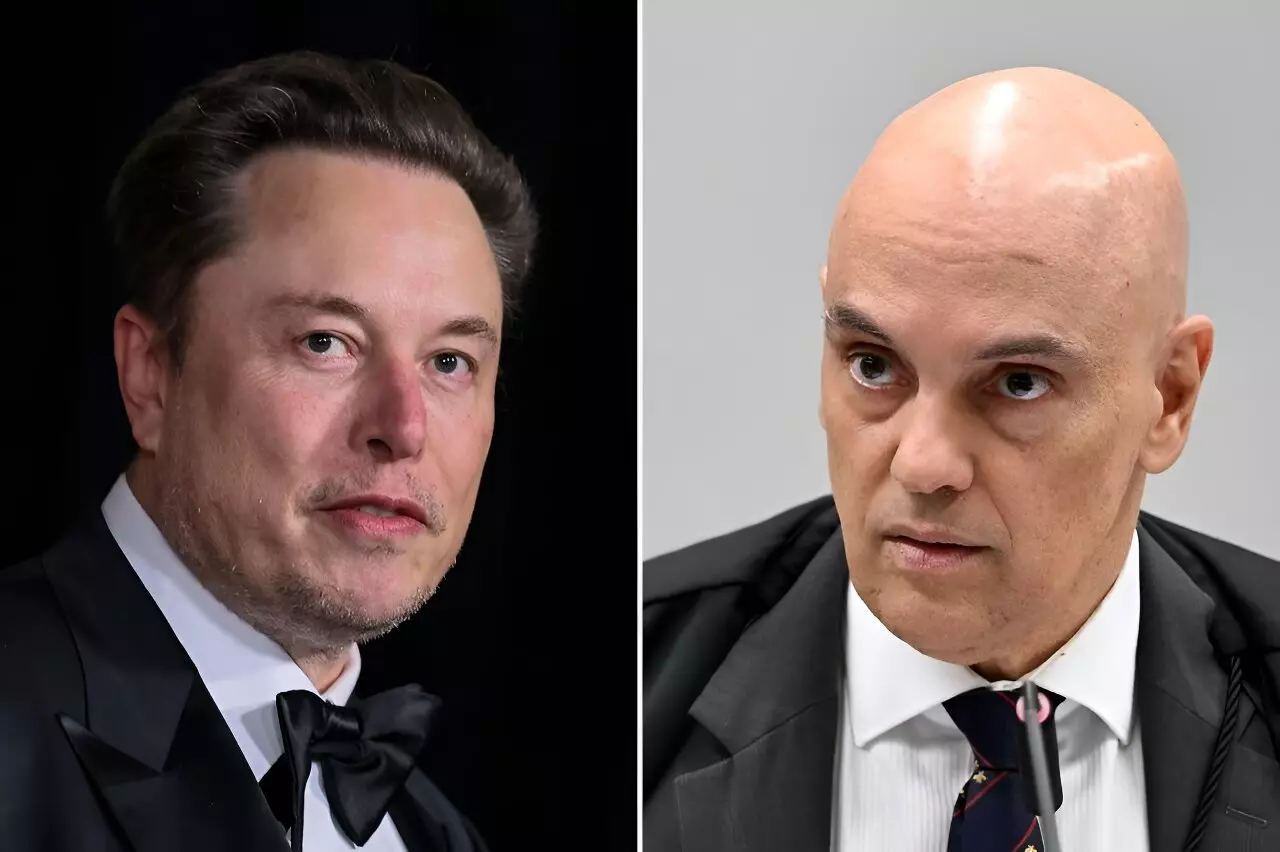The social media platform X, once known as Twitter, finds itself at the center of a heated legal standoff in Brazil. This confrontation primarily revolves around the actions of Brazilian Supreme Court Justice Alexandre de Moraes, who has imposed stringent regulations on the platform. Recently, X identified a legal representative within Brazil, a move hailed as a necessary step toward potentially resuming services. However, this development does not mark the end of the platform’s troubles, as a judge has ruled that the suspension will persist until X fulfills additional legal stipulations. This ongoing saga is emblematic of the broader challenges that digital platforms face when navigating the complex intersection of law, freedom of expression, and corporate accountability.
Justice Moraes remains a polarizing figure in this conflict with X’s owner, Elon Musk. His ruling comes at a time when X is accused of inadvertently facilitating the spread of misinformation through its platform. Moraes has criticized X for failing to comply with previous orders to remove accounts engaged in disseminating false information. The repercussions of these actions reach beyond legal ramifications; they highlight the delicate balance that platforms must strike between allowing free speech and curbing harmful, misleading content. With over 22 million users in Brazil before the suspension, X’s operational capabilities are crucial for both its business interests and the political discourse within Brazil.
The confrontation has intensified as Musk and Moraes exchange pointed remarks that reflect a rift not just between individual actors but also between broader ideological frameworks. Musk has derisively labeled Moraes an “evil dictator,” a characterization that resonates with his libertarian view of the internet as a bastion of free speech. Conversely, Moraes has outlined the potential peril misinformation poses to democracy, justifying the need for robust oversight. This battle extends beyond personal animosities; it raises fundamental questions about the extent of corporate responsibility when it comes to content management and its impact on real-world events.
The Brazilian government’s stance on X has garnered support from many within the political left, including figures close to President Luiz Inacio Lula da Silva. On the other hand, the opposition spearheaded by former president Jair Bolsonaro vehemently opposes what they deem unconstitutional censorship. These divergent perspectives shed light on the political riptides within Brazilian society over freedom of expression and the role of social media. Moreover, Moraes’s actions, including the freezing of X’s and Musk’s assets related to Starlink, point to a growing trend among governments to exert greater control over tech companies that fail to operate within national legal frameworks.
As X attempts to navigate its way through this turbulent legal landscape, the broader implications of its actions will undoubtedly reverberate across the global discourse on social media governance. The resolution of this case may set a precedent for how countries regulate online platforms in the face of misinformation, challenging the very foundation of what it means to operate responsibly in a digital age. For now, X’s fate in Brazil remains unclear, but the stakes of this legal entanglement are monumental, not just for Musk and Moraes but for the global digital community at large.


Leave a Reply